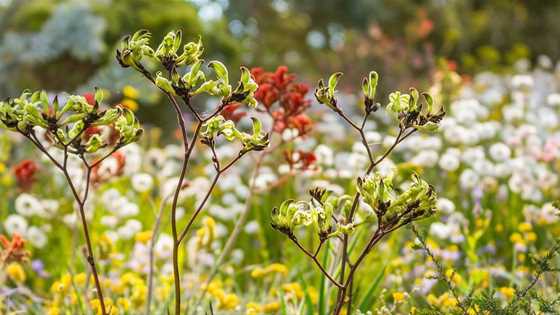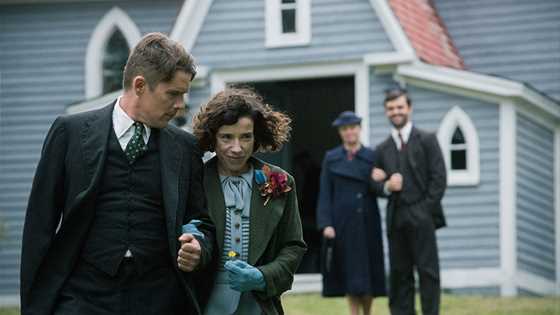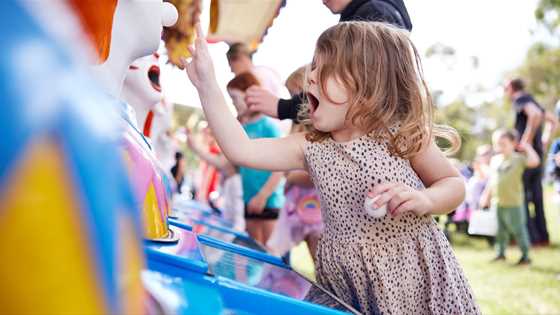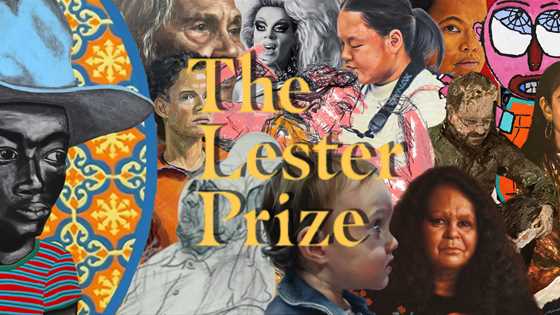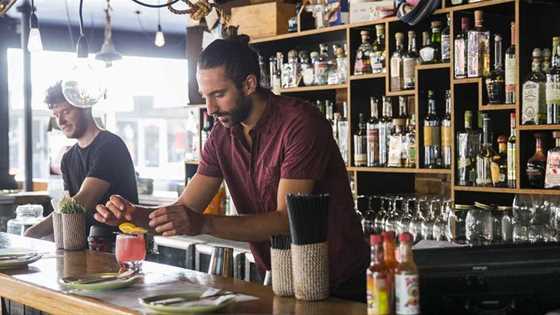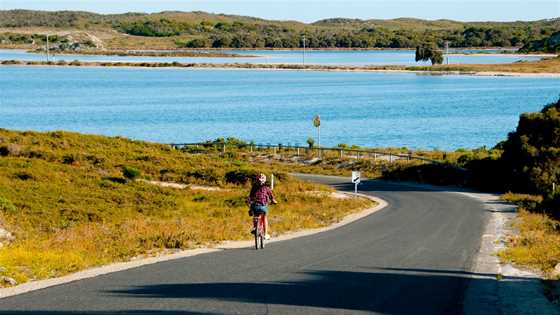WA Muslims face a growing tide of misinformation and ignorance about who they are and what they believe. It’s time to sort the facts from fantasy and fiction.
Yassmin Abdel-Magied was 17 when she undertook work experience in the Queensland mining town of Murrumba. At the end of a shift one day, walking past a pub crowded with miners, she heard somebody yell out a taunt "about terrorism or Mohammed".
Ms Abdel-Magied wears a hijab.
"I turned around to about 50 guys in mining gear," she relates, "and I said, 'Who said that? If anybody has a problem with me being here and wearing what I want to wear, or has something they would like to say to me, they can come right in front of me and say it right now!'
"OK, I probably put in a couple of swear words here and there," she adds with a chuckle. "You should have seen the look on all these blokes' faces! One of the workers lifted his beer glass as if to apologise. I walked off and I never had any trouble in the town again."
Today, Yassmin, 23, is an engineer working for a resources company in WA. Tall and imposing, she cuts a striking figure in her multi-coloured "African-inspired hijab", as she calls it. But when she wears a hijab in muted colours and in a more traditional style, she readies herself for different reactions. Work colleagues have told her, "Wow! You look really Muslim today!"
"That says to me the image that people have of Muslim women is so one-dimensional because they have no reference or framework for Muslim women being more than just an object or a particular outfit," she argues.
Few people have achieved as lofty a status in society as Professor Samina Yasmeen, a Pakistani immigrant who came to Australia more than 30 years ago. Made a member of the Order of Australia in June 2014 for her outstanding work in academia, and her advocacy and welfare efforts, she is an expert on Islam in world politics, and political and strategic developments in South Asia. She has every reason to feel confident about who she is and what she stands for – a Muslim who doesn't wear a hijab.

Professor James Trevelyan converted to Islam in order to marry Professor Samina Yasmeen, and found many of his Christian beliefs were met by his new religion.
Yet as she walked alone one night from a restaurant to the ABC studios in East Perth, she suffered an attack of uncertainty. It came when she pulled her dupatta (the scarf which covers her hair during prayers) over her head to protect herself from the cold.
A thought suddenly occurred to her: would she become a target for abuse because her head was covered in the hijab style?
"I thought, 'That's silly – I shouldn't be thinking like that'," she recalls. "But obviously I picked it up at some level that there is hostility being built into the system about everything that looks Muslim. I constantly tell myself that's not my problem, but the fact that I felt like that got me wondering about women who actually wear the hijab.
"I hear and I've seen that a lot of Muslims are feeling nervous, saying, should we go to the Mosque? Should I be recognised as a Muslim wearing a hijab, or whatever?"
So is that what it is like to be a Muslim woman in WA today? Are they (to misquote Martin Luther King Jr) to be judged not on the content of their character but the style of their headwear?
"People feel like they are entitled, because of the fact you wear a scarf, to lay on their opinion on your religion, on you and everything you stand for," says Yassmin Abdel-Magied. "I think it's unacceptable. But I also understand a lot of it comes from ignorance."
The hijab is a scarf which covers the head and neck but leaves the face uncovered. It is the most common form of female headwear in the Muslim world, but not the only one. The niqab is a veil which leaves only the eyes visible. It is most commonly worn in Persian Gulf countries and Pakistan, and is sometimes confused with the burqa, the least common and most concealing of veils, where eyes are covered by mesh.
Everyone, Muslims and non-Muslims alike, seems to have an opinion on the burqa and niqab (Prime Minister Tony Abbott famously finds them "fairly confronting") and to argue the merits of the headwear from the perspective of culture, religious fundamentalism, women's oppression, or freedom of religion.
But it is not the only debate over Muslim attire. In France, the UK and the US, dress codes for public swimming pools have come under the microscope after attempts to cater for Muslim sensitivities with women-only sessions provoked newspaper attention and minor outrage.
Of course, not all Muslim women have the same cultural outlook or needs. As Samina Yasmeen points out, there are progressive, orthodox and conservative Muslims. "You've got very progressive Muslims who would do things you'd be shocked at," she says.
Perhaps part of the problem caused by ignorance is the widespread misconception among the public that there is a 'Muslim community', when in fact there are many communities, each differentiated by culture, nationality and education.
Just as a Presbyterian from Glasgow might have little in common with a Chinese Catholic from Hong Kong (apart from Christianity), why would a middle-aged, poorly educated woman from an Afghan village have common interests with a third-generation migrant Lebanese teenager growing up in western Sydney... or a professor in mechanical and mechatronic engineering at UWA?
Professor James Trevelyan, the grandson of an English parson and known internationally for his research into sheep-shearing robots, converted to Islam many years ago to marry Samina Yasmeen.
Giving up his beloved ham sandwiches appears to have been more of a struggle than giving up Christianity.
"I was a moderately devout (Christian) but I got increasingly disillusioned," he says, explaining that his conversion was made easier when he found the central beliefs from his Christian upbringing were met in Islam.
"There's one God, you're supposed to look after other people before yourself, you say your prayers – those are the primary requirements," he says. "It really wasn't much of a change in terms of expectations and behaviour. There are wacky Muslims, there are wacky Christians. You have to put up with that – it comes with the territory."

Tammy Bux is a direct descendant of one of the first Muslim settlers in WA.
But does he feel under any pressure being a Muslim today, with a sharper focus on the religion because of overseas events? It seems not.
Perhaps that's aided by the fact he doesn't wear what one might call 'traditional Muslim attire'. "People don't know that I'm a Muslim so it helps," he acknowledges. In fact, he once got into trouble trying to enter Jerusalem's Al-Aqsa mosque to pray. "The Israeli guards wouldn't let me in because they said I didn't look Muslim."
Professor Trevelyan accepts that being Muslim today is more difficult for some Muslims, but says the problems should be put in perspective.
"Muslims in Australia do appear to be getting a bit of a rough time at the moment," he notes, "but it's nothing to what Catholics used to get from Protestants, and vice versa.
"I think it's important for Muslims in Australia to understand that this sort of thing has happened many times before, and it was much worse than it is today. In spite of the difficulties we face at the moment we can say we can sleep safe at night. We're not going to get our houses fire-bombed."
Yassmin Abdel-Magied doesn't believe the level of tensions surrounding her religion is as heightened in WA as in other parts of the country. Isolation helps protect WA from some of the drama, she says.
"The Muslim community is not nearly as large or visible as in Sydney or Melbourne, and I haven't felt the same tensions given recent news as I would have done, I think, had I been living in the Eastern States."
Of an estimated 475,000 Muslims in Australia, less than 10 per cent live in WA, dispersed through the suburbs, rather than concentrated in certain areas. In Lakemba in Sydney, more than 50 per cent of residents identifies as Muslim, with the largest overseas-born communities comprising Bangladeshis, Lebanese and Pakistani. A protest of about 200 Muslims was held there in September 2014 against police anti-terror raids, and Muslim organisations have hit out at the Federal Government's anti-terror legislation.
But just as Muslims do not constitute an homogenous group, neither are their responses the same to recent events in Syria and Iraq. Emotions range from outrage at what is being done in the name of their faith to a frustration bordering on anger that it should even be necessary for them to apologise for such barbaric acts. They're Australian – what has it got to do with them? Is Natalie Imbruglia obliged to apologise for Mafia atrocities because her father was born in Sicily?
Affy Bhatti is of Pakistani descent with an MBA from Curtin University and a job as a senior manager at Deloitte Consulting. He suffered racist attacks as a young man in his native Britain.
"I've faced prejudices, been glassed, bottled and stabbed by white guys, but none of it turned me to hate," he says. In fact, he's been involved in groups furthering interfaith understanding and networking. But when conversations turn to the Middle East, he feels ambivalence.

Friday prayer at St Paul's Anglican Church.
"As a Muslim, I struggle with this," he says. "Part of me says I don't want to be known as an apologist. Part of me says I really can't be bothered because I've got other interests, like football and kids and my job. But the other part of me says, 'You know what? You can make a difference, Affy'."
Dr Anne Aly is an Egyptian-born Muslim academic at Curtin University, and specialises in research into violent extremism. She feels there is an overemphasis on the supposed disenfranchisement and isolation to justify why some young people answer the call to arms.
"First of all, there's no such thing as Muslims standing around, mouths agape, waiting to be radicalised," she says firmly. "This is an absolute myth. The teenage years and early 20s are pivotal times in life for all young people. For young Muslim people, a lot of those questions are about identity and how they relate to their religion. And for a lot of them there's a vacuum of structure in Australia and a lot of western countries that can give them the answers to those questions. So they go online and look for these answers there."
Anne believes a huge opportunity was missed after 9/11 to educate young people about the damaging social consequences of terrorism. "But terrorism was a taboo subject and you didn't talk about it," she says. "So you have this generation of young people growing up with the memory of 9/11 but not really knowing what it meant and how we could prevent something like this in the future, other than by declaring a war.
"We taught our young people the way to respond to terrorism is to fight. So is it any wonder that now, 14 years on from 9/11, we have young people who want to go and fight – on both sides?"
On the numbers of Australians at risk of being radicalised, she believes it is larger than the 100 or so Australians estimated by the Government as supporting the violence in the Middle East, and the 60 or so fighting there.
And what of the violent extremists who insist the Koran justifies their jihad? "The
thing with the Koran is you can't take it out of context," Anne says. "I guess there are verses of violence in the Koran but they relate in an historical context to the defence of Islam during the time of the Prophet, and to what's called defensive action to protect oneself and one's community – which in the modern times we see with the creation of armies.
"The problem is that groups like Islamic State take these passages out of context and use them to package their political aspirations and their aspirations for power within the region, to lure young people to fight for them."
Scoop spoke with many Muslims who complained terrorists had hijacked their religion and twisted the Koran for their own political purposes. Imran Mohiuddin, the state chief executive of Colliers International, has lived in Perth since migrating from Pakistan in 1976. But his Australian roots go far deeper: his great grandfather, Mohammad Bux, migrated to Australia in the 19th century.
Mr Mohiuddin describes the Pakistan where he grew up as a moderate country where the emphasis of Islam was on respect, egalitarianism, and tolerance. Unfortunately, that has changed and the atmosphere in most Islamic countries has become more entrenched and extreme, he says.

Cousins Tammy Bux (third from left) and Imran Mohiuddin (second from left), with fellow descendants of Mohammad Bux who immigrated to WA in the 1880s.
"My own feeling is that the Islamic principles that I was taught are not available in many Islamic countries who've become less tolerant, less respectful and spreading religion by the sword, which was something that we were always taught had never happened in Islam.
"So, for me, Australia provides a more egalitarian, multi-cultural, tolerant, respectful society than any other Islamic country I can think of. The true principles of Islam exist here, in my mind."
Sheikh Feizel Chothia, a South African-born Islamic scholar who teaches and
preaches in Perth, gives another perspective. He lays the blame on what is happening in the Middle East on a mixture of centuries of meddling by the West, and on Wahhabism, a violent jihadist movement.
"Firstly, I need to emphasise Wahhabism is not part of mainstream normative
orthodox Sunni Islam," he says. "Secondly, it is a factional subversive movement that has always been a terrorist entity in the Islamic world, and that has simply been co-opted, firstly by the English in the wars against the Ottoman Empire. It re-emerges in modern history, with America emerging as a dominant world power, its need to co-opt these extremist groupings in the subversion and even subjugation – brutally so – of target populations, and the Muslim world is that target.
"Also, it represents a very convenient pretext to justify any unjustified incursion into Muslim lands. For example, Australia sent a couple of bombers and SAS military under the pretext of protecting the poor Syrians from these brutes – the Wahhabi extremists. So it just becomes a very convenient pretext."
So politics again intertwined with religion, then. Or maybe, just maybe, religion can
find a way forward through political difference by working together. Sheikh Feizel relates how he was searching for a place to hold Friday prayers in the Fremantle area, and knocked on the door of St Paul's Anglican Church in Beaconsfield to ask if there was a room he could borrow.
He was unaware at the time that the vicar was a man very open to other religions. In fact, the Reverend Peter Humphris had Muslim prayer mats that he'd brought back from his travels in Asia, kept in a meditation room in his church.
"We don't know God – we're looking for God, and we need to be attentive to and
mindful of those who are also looking," says Rev Humphris, explaining that faiths should be seen as circles which overlap, rather than segmented boxes. "If you don't look in the overlap, your vision is limited."
And how did his parishoners react to his welcoming Muslims to pray on St Paul's church grounds on Fridays?
"No-one has voiced any open objections," he says. "Not one."
Similarly, the Uniting Church allows Muslims to use a property it owns in Perth's William Street for Friday prayers.
If there were more such incidences of integration and cooperation, education and tolerance, perhaps Muslim women's headwear would not be so confronting after all.


